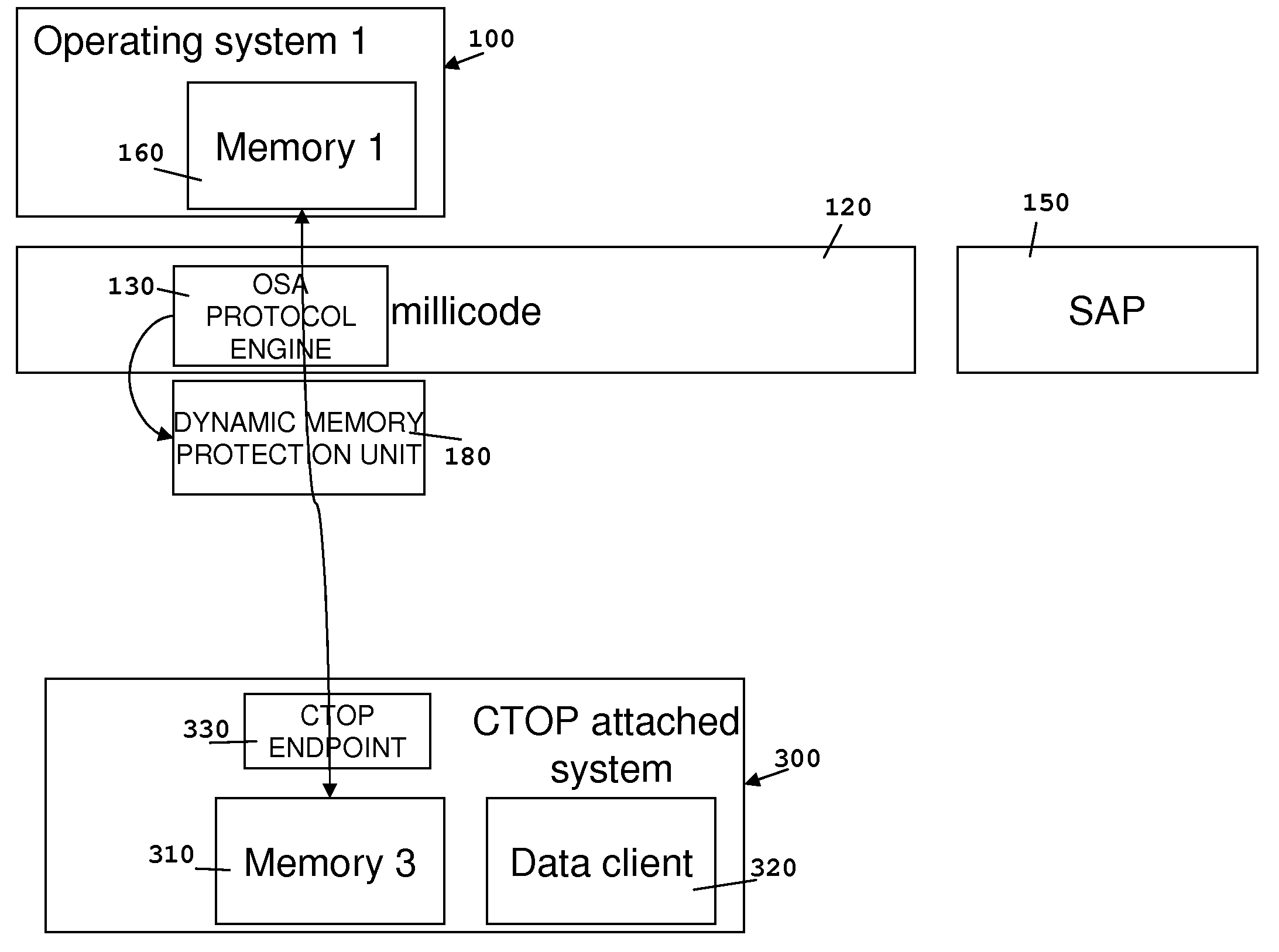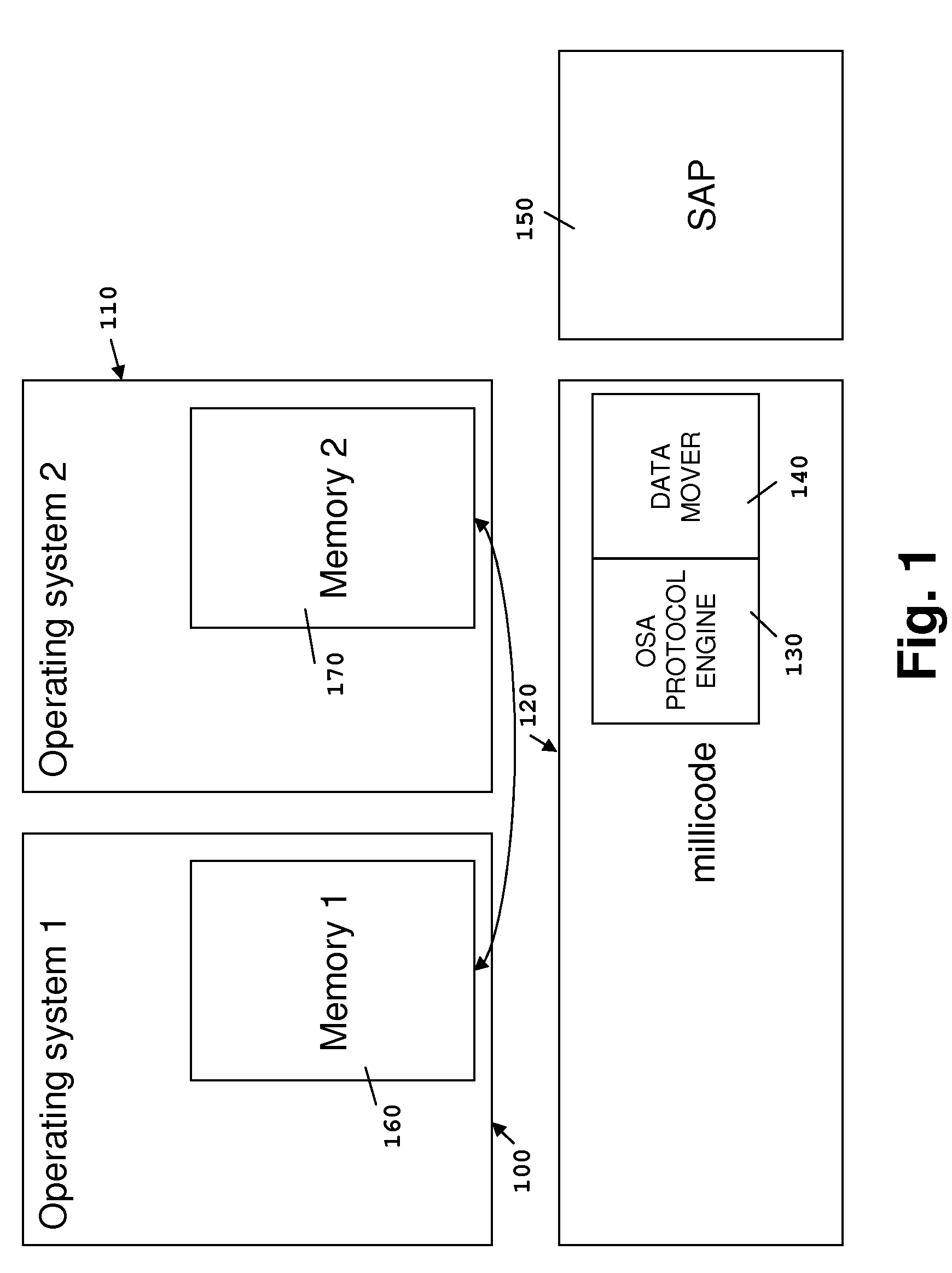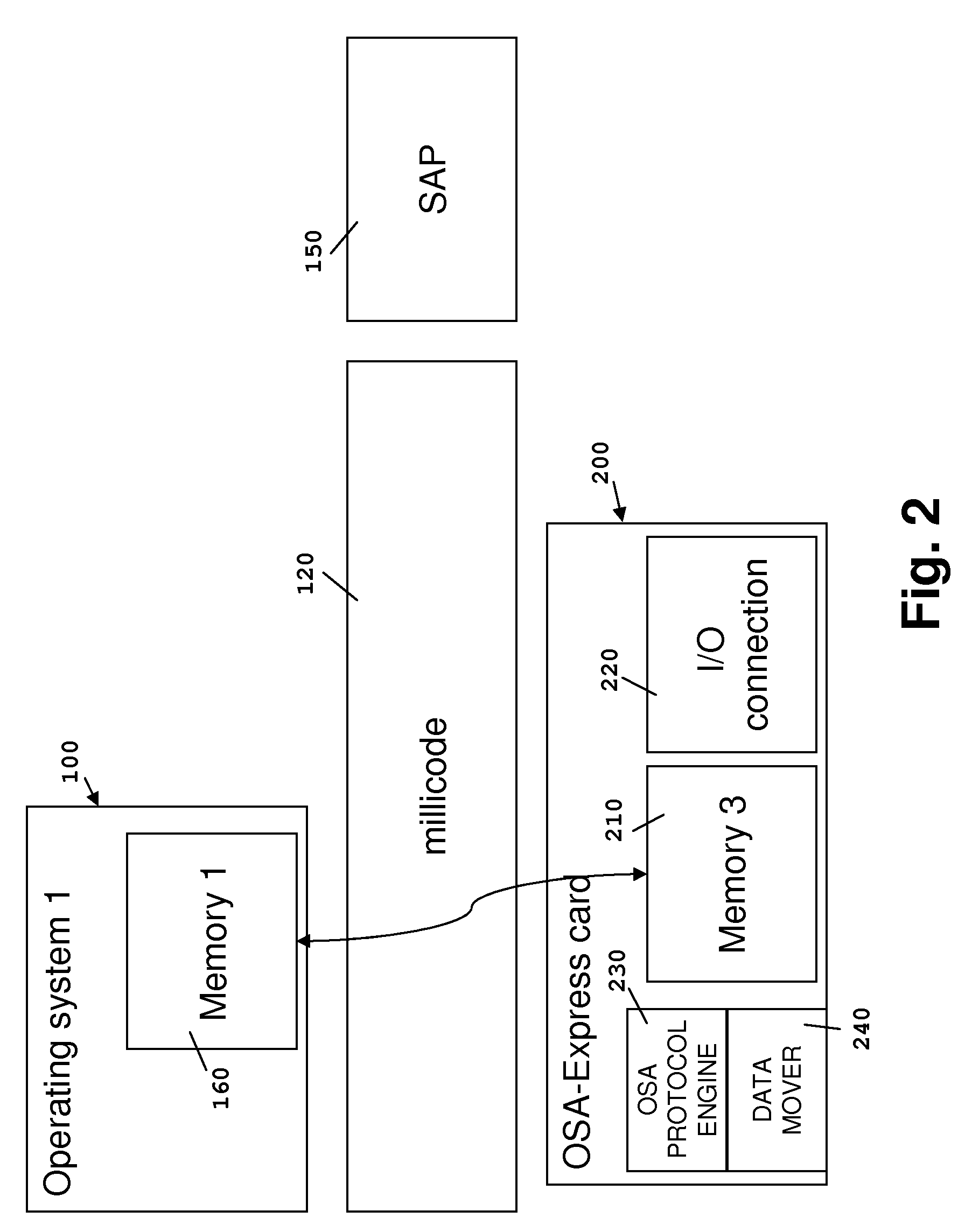Method and computer system for providing remote direct memory access
a technology of remote direct memory and computer system, which is applied in the field of data exchange between, can solve the problems of long round-trip time between, unsatisfactory changes to an operating system, and compromise the security of the computer system
- Summary
- Abstract
- Description
- Claims
- Application Information
AI Technical Summary
Benefits of technology
Problems solved by technology
Method used
Image
Examples
embodiment details
Additional Embodiment Details
[0062]The described techniques may be implemented as a method, apparatus or article of manufacture involving software, firmware, microcode, hardware and / or any combination thereof. The term “article of manufacture” as used herein refers to code or logic implemented in a medium, where such medium may comprise hardware logic (e.g., an integrated circuit chip, programmable gate array (PGA), application-specific integrated circuit (ASIC), etc.) or a tangible computer-readable medium, such as magnetic storage medium (e.g., hard disk drives, floppy disks, tape, etc.), optical storage (CD-ROMs, optical disks, etc.), volatile and non-volatile memory devices (e.g., electrically erasable programmable read-only memory (EEPROM), read-only memory (ROM), programmable read-only memory (PROM), random-access memory (RAM), dynamic random access memory (DRAM), static random-access memory (SRAM), flash, firmware, programmable logic, etc.). Code in the computer-readable medi...
PUM
 Login to View More
Login to View More Abstract
Description
Claims
Application Information
 Login to View More
Login to View More - R&D
- Intellectual Property
- Life Sciences
- Materials
- Tech Scout
- Unparalleled Data Quality
- Higher Quality Content
- 60% Fewer Hallucinations
Browse by: Latest US Patents, China's latest patents, Technical Efficacy Thesaurus, Application Domain, Technology Topic, Popular Technical Reports.
© 2025 PatSnap. All rights reserved.Legal|Privacy policy|Modern Slavery Act Transparency Statement|Sitemap|About US| Contact US: help@patsnap.com



